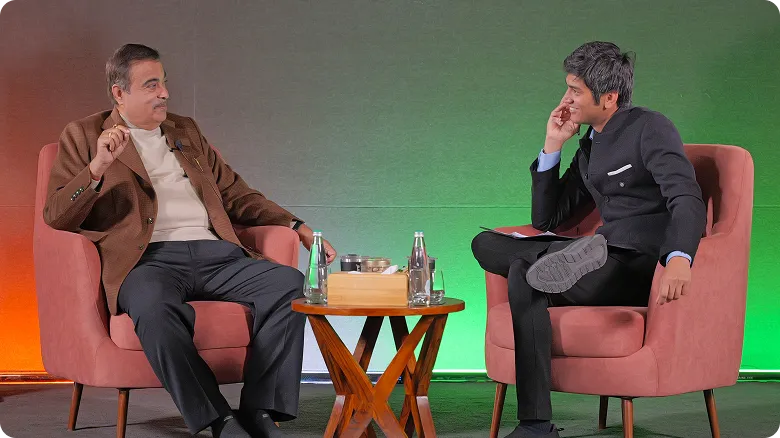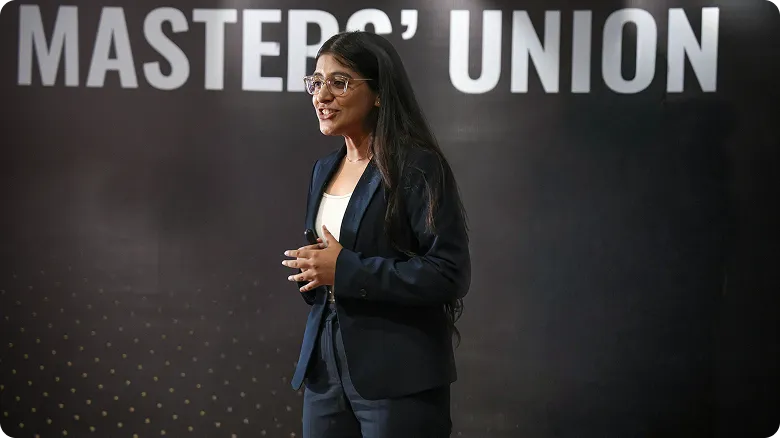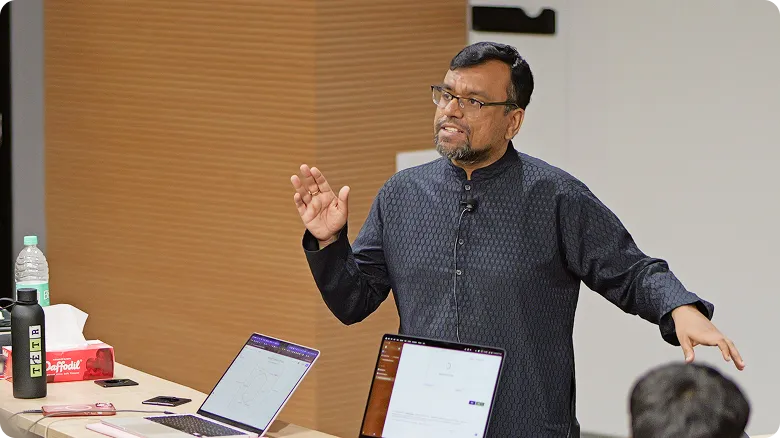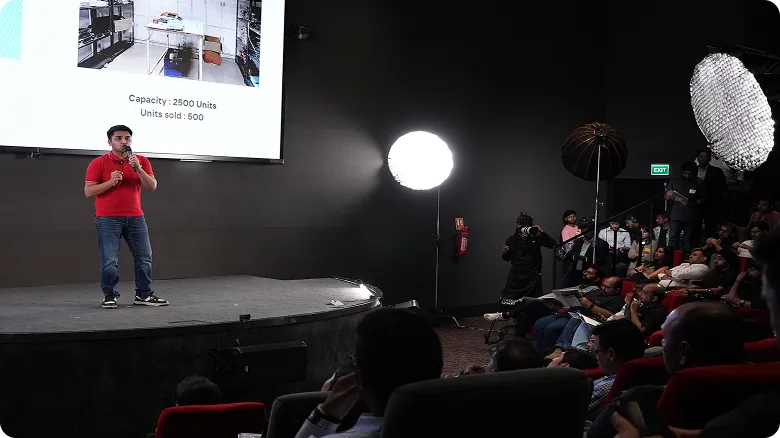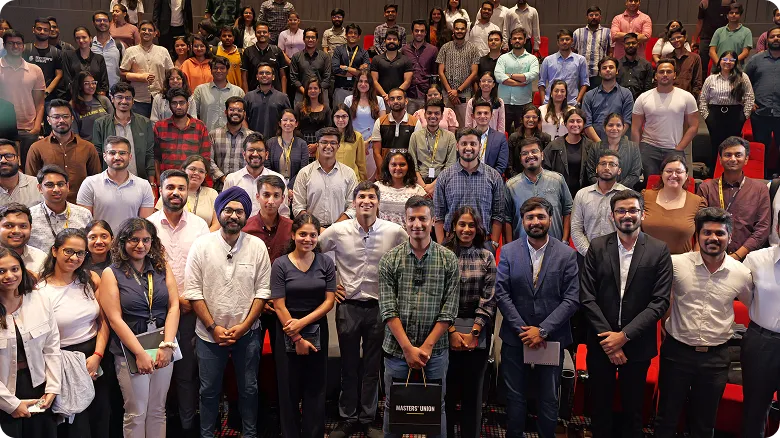Undergraduate
Undergraduate (Global)
Postgraduate
PGP in Technology and Business Management
PGP in Technology & Business Management
(Young Leaders Cohort)
PGP in Human Resources & Organisation Strategy
PGP in Sports Management & Gaming
PGP in Applied AI & Agentic Systems
PGP in UI/UX & Product Design
PGP in Sustainability & Business Management
PGP Bharat
Executive
Family Business
Careers
Innovations
Faculty
MU Ventures
Enterprise Education
Student Life
Jobs
Become a Master
events
For Companies
Blog
Business
How India Can Grow 10x by 2047: Insights from the CEO of Grant Thornton Bharat
April 9, 2025
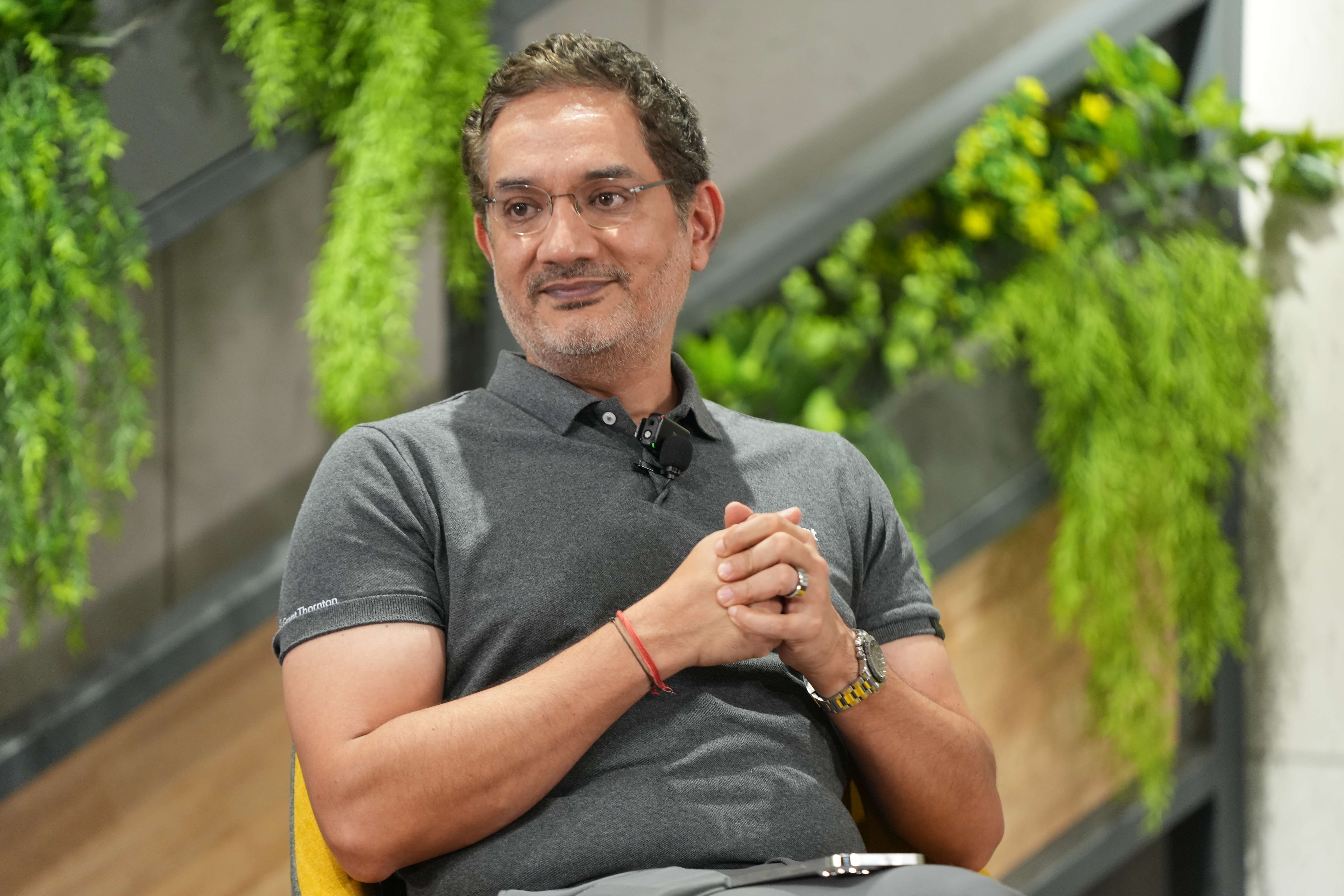
India stands at the cusp of a transformative economic journey, with the potential to grow tenfold by 2047. But achieving this ambitious goal requires more than just financial growth. It demands strong leadership, ethical business practices, and a culture that prioritises people.
Vishesh C. Chandiok, CEO of Grant Thornton Bharat LLP, shared his leadership evolution over his 30-year career, in an insightful conversation at Masters’ Union.
Want to watch the video instead?
Watch this podcast to learn how Vishesh transformed Grant Thornton Bharat into one of India’s top consulting firms, the role of ethics in business education, and why strong corporate culture is a company’s greatest competitive advantage.
Transitioning from reactive to strategic decision making
Vishesh admitted that as a CEO in 2008, his instinctive reaction to financial pressure was cutting jobs and salaries, a decision that he now recognises was a mistake."I was focused on short-term financial survival, but I failed to see the long-term impact on morale and trust," he shared.
Fast forward to 2020, his approach during the COVID-19 pandemic was fundamentally different. Instead of layoffs, he prioritised job security, ensuring that employees felt stable and valued during the crisis. He says that a motivated workforce is a company’s biggest asset. If you take care of them during tough times, they will take care of your business through thick and thin.
This decision reflects a shift from reactive decision-making to a more strategic, people-first leadership approach, a key lesson for business leaders navigating uncertain times.
Building a success-driven culture
"Culture is not what you write in corporate documents. It’s how your people feel about working in your organisation," says Vishesh.
A company’s culture is its backbone, and strong, trust-driven cultures are essential for attracting and retaining top talent. Under Vishesh’s leadership, Grant Thornton Bharat transformed from a small firm into one of India’s leading consulting firms, driven by a commitment to:
-
Open communication
-
Trust and transparency
-
Employee well-being
He argued that firms that prioritise employee engagement, fair treatment, and ethical leadership ultimately outperform those that focus only on financial metrics.
Embracing global best practices is a must
With India’s economic expansion, Vishesh asserts that businesses must adapt their strategies to stay competitive. Vishesh pointed out that:
-
Governance and compliance standards are evolving
-
Indian firms are expanding globally
-
The demand for ethical business practices is rising
"The companies that thrive in the next decade will be those that embrace governance, innovation, and global best practices," he said.
As next steps, Vishesh will focus on advising Indian companies with global aspirations and ensure that they compete on an international scale while maintaining strong ethical foundations.

Why ethics is needed in business education
Vishesh strongly advocates for integrating ethics into business education, arguing that technical expertise alone isn’t enough to create great leaders.
"Future CEOs need to be as well-versed in moral principles as they are in balance sheets," he noted.
He believes that business schools should:
-
Teach ethical decision-making alongside strategy and finance
-
Prepare students for real-world dilemmas in corporate leadership
-
Instill values that foster responsible business growth
By embedding ethics into the curriculum, future leaders will be better equipped to make decisions that benefit both businesses and society.
The power of personal and professional balance
Beyond corporate success, Vishesh highlighted the importance of personal relationships in shaping leadership. He credited much of his growth and stability to the support of his life partner, emphasising that strong personal foundations lead to better professional decision-making.
"No leader succeeds in isolation. The people around you including your family, mentors, and colleagues shape who you will become”. This perspective reinforces the idea that great leadership extends beyond boardrooms. It’s also deeply rooted in emotional intelligence and work-life balance.
Key takeaways for aspiring leaders
Vishesh’s leadership journey is a blueprint for modern leadership. He concluded that leadership is not about having all the answers. It’s about making decisions with integrity, learning from the past, and building a culture that people believe in.
To summarise:
-
Leadership is about learning from mistakes: Learning from poor decisions made in one crisis can shape better responses in the next.
-
Corporate culture is a competitive advantage: Companies that prioritise trust, transparency, and employee well-being build stronger businesses.
-
Adaptability is crucial: The business landscape is evolving, and firms must embrace governance, innovation, and global best practices.
-
Ethics should be integral to business education: Future leaders must be trained to balance profit with principles. Short-term gains done unethically impacts long-term growth.
-
Long-term vision beats short-term fixes: Sustainable success comes from strategic planning, not reactive decisions.
-
Personal relationships shape leadership: Support systems play a huge role in a leader’s ability to perform effectively.
As India continues its economic rise, leaders who focus on governance, adaptability, and ethical decision-making will drive the next wave of business success.







